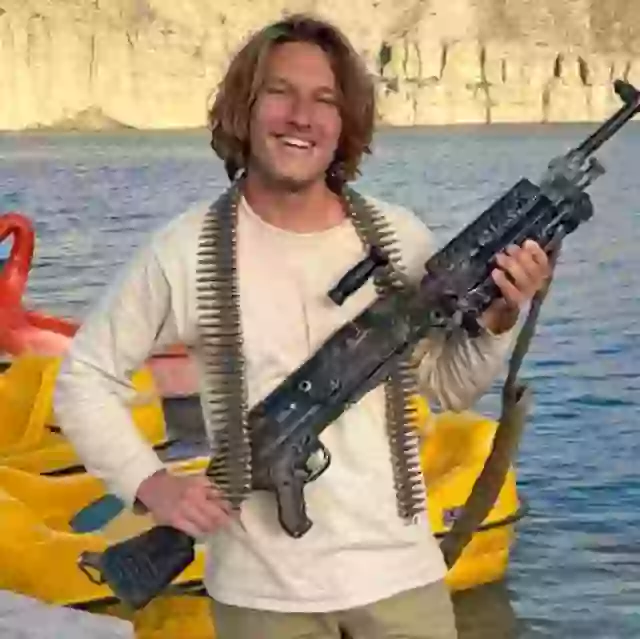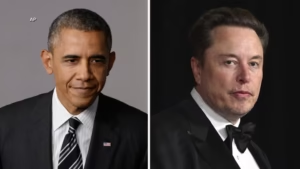In a bizarre and reckless attempt to chase viral fame, a controversial YouTuber now finds himself entangled in a legal nightmare. The content creator, whose name is being withheld due to ongoing legal proceedings, reportedly attempted to deliver a can of Diet Coke to one of the world’s most isolated and uncontacted tribes. The ill-advised stunt has not only provoked outrage from anthropologists and human rights groups but also landed the YouTuber behind bars, where he now faces a potentially severe prison sentence.
A Dangerous Obsession with Views
The incident unfolded in a remote region of the Indian Ocean’s North Sentinel Island, home to the Sentinelese people. Known for their complete isolation from modern civilization and fierce resistance to outsiders, the Sentinelese have lived independently for thousands of years, preserving a way of life untouched by the modern world.
Despite multiple warnings from authorities, anthropologists, and indigenous rights groups, the YouTuber, whose channel boasts over 800,000 subscribers, attempted to approach the tribe with a can of Diet Coke as what he called a “peace offering” and “cultural bridge.” His goal, according to a now-deleted video description, was to “make first contact” and “bring modern joy to the untouched people of Sentinel Island.”
The video, briefly posted before being taken down, showed him hiring local fishermen to take him close to the restricted island. He then waded ashore, can of soda in hand, while shouting greetings in English. The footage cuts off abruptly as members of the tribe appeared on the shore, visibly agitated and armed with bows and arrows.
Legal and Ethical Backlash
The act not only violated strict Indian laws that prohibit contact with the Sentinelese but also posed a potentially lethal threat to the tribe. As an isolated population with no immunity to modern diseases, even the most harmless-seeming interaction could bring catastrophic consequences, introducing pathogens that the tribe has no defense against.
“His actions were not just reckless; they were potentially genocidal,” said Dr. Anika Sharma, an anthropologist specializing in indigenous protection. “One foreign bacterium could devastate a community that has thrived in isolation for centuries.”
Indian authorities acted swiftly. After local fishermen reported the incident, the YouTuber was arrested on charges that include criminal trespass, endangering the lives of an isolated tribe, and violation of protected area regulations under the Indian Penal Code and the Andaman and Nicobar Islands (Protection of Aboriginal Tribes) Regulation.
On Tuesday, a local court denied the YouTuber’s request for bail, citing the seriousness of the charges and the international attention the case has garnered. Legal experts predict a tough sentence, with some speculating that he could face up to seven years in an Indian prison.
The Dark Side of Influencer Culture
This incident has reignited discussions about the lengths to which social media personalities are willing to go in pursuit of online fame. The pressure to constantly produce unique, shocking, or heartwarming content has led many YouTubers and influencers into morally dubious and sometimes dangerous territory.
“What’s so alarming is the growing trend of exploitative ‘adventure’ content where indigenous peoples, wildlife, and even protected sites become backdrops for social media stunts,” said Amanda Lee, a media ethics researcher. “It’s a troubling intersection of digital culture and neo-colonial attitudes.”
The platform where the video was briefly posted, YouTube, has faced criticism for not acting quickly enough to remove the content and for enabling creators who profit from such stunts. While the video has since been scrubbed from the platform and the YouTuber’s account temporarily suspended, advocacy groups are calling for permanent bans and stronger safeguards against harmful content.
International Outrage and Support for Indigenous Rights
Global organizations such as Survival International and Human Rights Watch have issued statements condemning the YouTuber’s actions. Both groups have stressed the importance of respecting the autonomy and rights of uncontacted tribes, emphasizing that the Sentinelese should be allowed to live undisturbed.
“This was not an innocent mistake or a harmless prank,” said Stephen Corry, director of Survival International. “It was an arrogant, dangerous intrusion that could have had devastating consequences for the tribe and must be taken seriously by the courts.”
At the same time, public opinion seems to have turned sharply against the YouTuber. While his subscribers once admired his daring travel videos, comment sections and social media posts are now flooded with condemnation and calls for accountability.
A Cautionary Tale
As the legal case progresses, experts hope this will serve as a cautionary tale for others tempted by the lure of viral fame. The world’s uncontacted tribes are protected for a reason, and disrupting their isolation is not only illegal but can be deadly.
“Respect for human dignity, culture, and health should always outweigh internet clout,” said Dr. Sharma. “This isn’t just about one reckless influencer—it’s about the broader need for ethical responsibility in our increasingly connected world.”
The case is scheduled for a preliminary hearing next month, and with international attention focused on the outcome, it may well set a legal and moral precedent for how modern society navigates the delicate balance between freedom of expression and the rights of those who choose to live beyond its reach.











